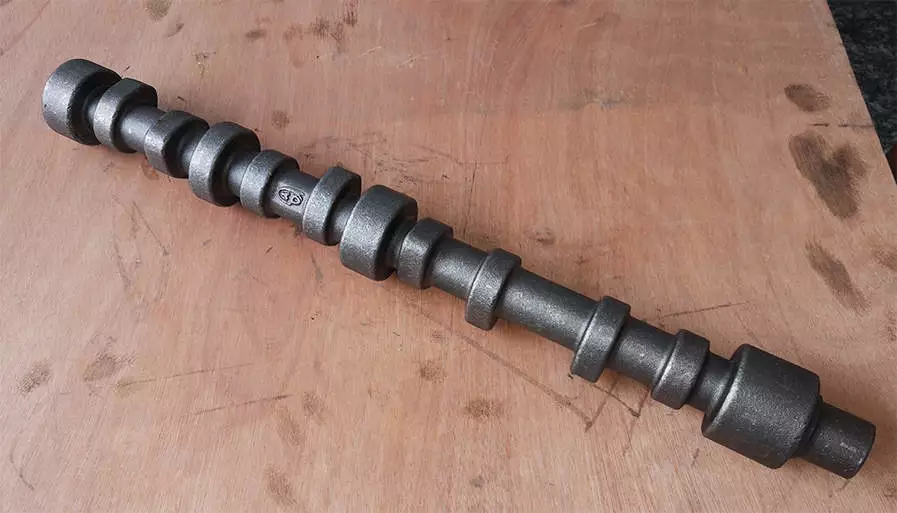In the intricate world of automotive engineering, where precision is paramount, the forged camshaft emerges as a silent conductor, orchestrating the opening and closing of valves with meticulous accuracy. At the heart of this mechanical marvel lies a simple principle: the continuous rotation of the camshaft sets the stage for the rhythmic ascent and descent of valve stems, regulating the vital flow of air and fuel within an engine. The art lies in the camshaft's ability to fine-tune this performance by altering its curvature, thereby controlling the precise timing of valve operation.
Yet, what truly enhances this mechanical symphony is the process known as camshaft forging. This technique involves heating metal materials to specific temperatures and then subjecting them to the immense pressure and deformation of a forging machine. The resulted forged camshafts that exhibit an array of advantages that have far-reaching implications for the automotive industry.

Advantages of Forged Camshafts
1. High Strength: One of the standout features of forged camshafts is their impeccable strength. Their surfaces boast a flawlessness that is devoid of imperfections like pores. The uniform density of the material contributes to impeccable wear resistance, making these camshafts capable of enduring the harshest conditions. With strength being a non-negotiable attribute in automotive components, forged camshafts rise to the challenge with distinction.
2. High Precision: Precision in automotive engineering is akin to artistry, and forged camshafts are the virtuoso performers. Their manufacturing process allows for a higher degree of precision. This precision is not limited to the overall shape and size but extends to intricate details, ensuring that the camshafts can meet the most stringent design requirements. This level of precision is invaluable, especially when it comes to optimizing engine performance.
3. Energy Conservation and Environmental Protection: In an era when environmental concerns are paramount, the forging process used to create camshafts offers a sustainable advantage. Compared to the conventional casting process, forging is significantly more energy-efficient. It not only reduces energy consumption but also minimizes environmental pollution. With sustainability becoming increasingly essential in the automotive industry, this makes forged camshafts a choice that aligns with both performance and planet-conscious ideals.
In essence, the marriage of precision engineering and the art of material science has given rise to forged camshafts, which are redefining the very essence of automotive performance. These mechanical maestros, with their unmatched strength, precision, and eco-friendly attributes, underscore the evolving landscape of modern vehicles. As automakers continue to innovate and explore ways to optimize performance and reduce environmental impact, forged camshafts stand as a testament to progress in the pursuit of automotive excellence.
18
Sep
Optimizing Automotive Performance: The Significance of Forged Camshafts
Related News
- Metallurgical Defects in Titanium Alloy Forging Process
- The Defects of Forged Components and Improvement Measures
- Media Selection for Optimizing Forging Quenching Process
- Challenges and Solutions in Special Alloy Forging
- Forging Measurement and Inspection Methods
- Overheating in Forging: Causes, Effects and Prevention
- Precision Die Forging: Advantages and Applications
- Understanding and Mitigating Oxidation in Forgings
- What Affect the Performance of Aluminum Alloy Forging?
- Forging Pickling Process and Its Key Role

